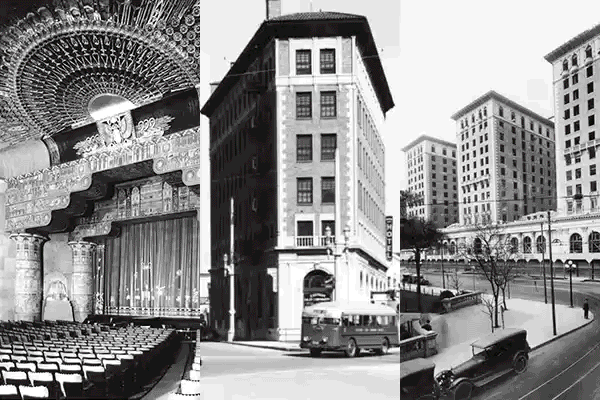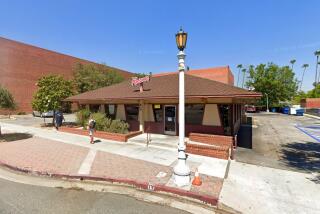Roscoe (Fatty) Arbuckle, Hollywood’s 300-pound star party...
- Share via
Roscoe (Fatty) Arbuckle, Hollywood’s 300-pound star party animal, held many bashes at his Plantation Cafe in Culver City, but none like the one he threw in San Francisco over Labor Day weekend in 1921.
It was to be a fateful time for the celebrated silent-screen comic. His career collapsed in the aftermath of the death of one of the party guests, Virginia Rappe. The beautiful, 25-year-old brunette had been viciously raped after days of drinking at the extravaganza in the renowned St. Francis Hotel. Arbuckle was charged with manslaughter and put on trial three times within a year. The first two trials ended with hung juries, and in the third Arbuckle was acquitted.
But he was vilified by a moviegoing public that was horrified by the media’s accounts of the scandalous case. Fans who once had flocked to his films began sending him hate mail and calling for his banishment from the screen. Paramount scrapped his lucrative contract, and Arbuckle became Hollywood’s living ghost--highly talented but unemployed.
His extravagant lifestyle--which had included a $1,000-a-day salary and a $25,000 Rolls-Royce with a built-in back-seat toilet--came to an end.
In an attempt to restore his wealth, in 1928 Arbuckle bought what would become a noted nocturnal playground--the Plantation Cafe at 7600 W. Washington Blvd. in Culver City.
The restaurant, with its colonial facade and giant sign, had been built by Culver City Councilman Dan Coombs in 28 days. Arbuckle soon turned it into a favorite hangout for celebrities and others, offering top-name entertainment.
But in January, 1929, the Plantation came under fire from neighbors who branded the restaurant a public nuisance. The Times reported that complaints were filed specifying “loud and unusual” noises, “particularly the sounds of an orchestra drum . . . the worst sleep-disturber,” coming from the cafe after 2:30 a.m.
With the neighborhood in an uproar, the Culver City mayor, the city attorney and Coombs slipped onto the cafe grounds looking for evidence of criminal activity. Among other things, newspaper accounts say, they “searched diligently for petters who retire to shady nooks.”
Finding none, they went inside. Arbuckle welcomed them and offered to remove the drum from the orchestra. But the city officials, won over by the comedian’s hospitality, decided that a “nightclub without a drum was unthinkable,” so it stayed.
About the time that Arbuckle purchased the Plantation, he and his pal Charlie Chaplin opened the Montecito Inn in Santa Barbara. But with the stock market crash and then the Depression, the comedians’ timing was off. The cafe and inn, intended for the Hollywood crowd, soon changed hands. For years the Plantation lay dormant and in disrepair. For a time it served as a boxing gym for disadvantaged youths before it was torn down in the 1950s. Balboa Records Co., a record distributor, now occupies the site.
Arbuckle, whose cinematic fame and popularity at the box office had once rivaled Chaplin’s, died in 1933 of a heart attack at age 46.
Some believe that Arbuckle had been framed in the death of Rappe.
But, guilty or not, he did not live long enough to stage his planned comeback from the scandal. Hollywood in the 1920s developed a reputation as Sin City, and Arbuckle has remained one of its most enduring symbols.
More to Read
The biggest entertainment stories
Get our big stories about Hollywood, film, television, music, arts, culture and more right in your inbox as soon as they publish.
You may occasionally receive promotional content from the Los Angeles Times.










